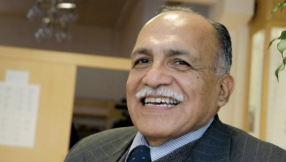
John Rockefeller was one of the wealthiest men of his day. He was once asked how much money he wants to make, and he replied, "Just a little bit more."
Whether you're the richest man on earth or someone earning less than what he wants to make, we've all felt that urge to have more money.
But we learn through biblical principles that how we use our finances is more important than how much finances come in. Earning one million dollars a year means very little when we're spending $2 million a year on things that don't really matter. We call this stewardship—a spirit-led and wisdom-motivated desire and decision to use our finances well.
Jesus and the Bible talk to us many times about money because it's important. Of all the important lessons, here are three tips for godly financial management.
1. Check Your Heart Before Your Wallet
Godly financial stewardship is first and foremost an issue of the heart before it is an issue of the wallet. Matthew 6:21 tells us, "For where your treasure is, there your heart will be also."
Before we even start budgeting, allocating and spending, our hearts must first come into light.
Are there desires that do not align with God's? Are our spending habits in line with Bible-based principles for life and living? All this will be answered when we first examine our hearts.
2. Pursue Contentment, Not More Gain
Studies have shown that it's not the amount of money we make that brings the most satisfaction but the amount of contentment in our hearts. Greed looks to what we do not have and what we desire to gain more than the things we already have. Gratitude, however, teaches us to look to what we have first.
In 1 Timothy 6:6-7 Paul tells us, "But godliness with contentment is great gain, for we brought nothing into the world, and we cannot take anything out of the world."
3. Exercise Faith and Wisdom
Faith and wisdom are two ends of a balance scale. While we are to walk in faith in God's ability to provide and give us our daily bread, we must also walk in His wisdom to do our part. God wants us to believe in Him, but He also doesn't want us sacrificing employment to prove a point (unless God really calls you to).
Both faith and wisdom lead us similarly to walk in God's ways when it comes to financial management. However, they work in different ways. Faith teaches us to rely on God while wisdom teaches us to walk in those ways in practical ways.













